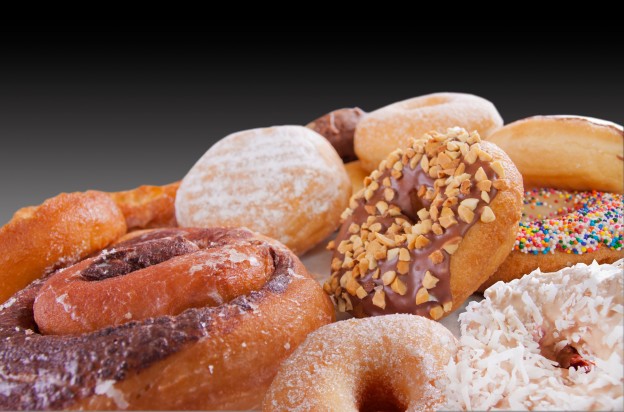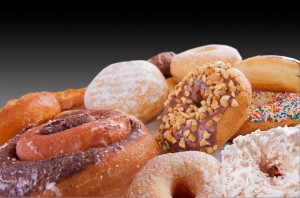The brain and food consumption are directly related through hormones. Hormones are essentially chemicals in the body that circulate through the blood stream until they signal a change to the brain and body. The hypothalamus is the central communication hub that coordinates the uptake and release of these chemicals.
Food itself can be catalyst to induce hunger. The smell, look or taste of favorite foods have been associated with the release these chemicals in the brain. Hormones associated with weight gain are:
Ghrelin
Ghrelin is a key factor in the stimulation of appetite. It is secreted by the lining of the stomach. This hormone will increase the appetite before eating a meal. It is also responsible for decreasing appetite after eating a meal. This is primarily because the lining of the stomach no longer produces these secretions after eating. Blood sugar and glycogen levels that are low will stimulate an increase in Ghrelin.
Leptin
Leptin originates in fat cells as a secretion. This secretion is intercepted by hypothalamic receptors. Low levels or absence of Leptin is associated with insatiable and uncontrollable hunger. The higher the amount of fat cells in a person, the higher the level of Leptin in the blood stream. This, in turn, signals to the brain that less food is therefore required for overweight people.
Overfeeding temporarily increases Leptin, reducing hunger and stimulating feelings of fullness.
It is possible to become Leptin resistant. Adequate levels of this hormone are being generated but the brain is not reacting appropriately to the signal. Therefore, a person with Leptin resistance will still experience hunger although there is a high level of fat cells secreting the hormone.
Cortisol
 Cortisol is a hormone that is released into the blood stream during stressful times. This chemical is beneficial in that it provides a high threshold for pain, adrenaline rushes, bursts of energy, boosts to the immune system and memory. This chemical regulates the metabolism of fats and carbohydrates to achieve this. As a result, appetite is increased. A person that is constantly exposed to high levels of stress will generate an overabundance of cortisol levels. This overabundance will, in turn, create steady increase in appetite and food consumption leading to weight gain.
Cortisol is a hormone that is released into the blood stream during stressful times. This chemical is beneficial in that it provides a high threshold for pain, adrenaline rushes, bursts of energy, boosts to the immune system and memory. This chemical regulates the metabolism of fats and carbohydrates to achieve this. As a result, appetite is increased. A person that is constantly exposed to high levels of stress will generate an overabundance of cortisol levels. This overabundance will, in turn, create steady increase in appetite and food consumption leading to weight gain.
Your Brain, Hormones and Weight Gain after Dieting
When dieting the overall goal is to decrease body fat percentage. A decrease in body fat will directly affect hormone levels in the body counteracting this goal. Studies have shown that this will lower the levels of such hormones as Leptin and Ghrelin. Lower levels of Leptin will result in less feelings of fullness. Ghrelin may increase and create elevated feelings of hunger.
As a result, most dieters gain weight after successfully completing a diet and reaching weight loss goals. Weight loss is only the first step. Maintaining that weight loss is a struggle. A key to effectively maintaining weight loss goals has been linked to hormone treatment. This is similar to diabetics that utilize insulin treatments to maintain glucose levels. It may be possible to stimulate the release of appetite suppressant related chemicals to maintain weight loss goals.









